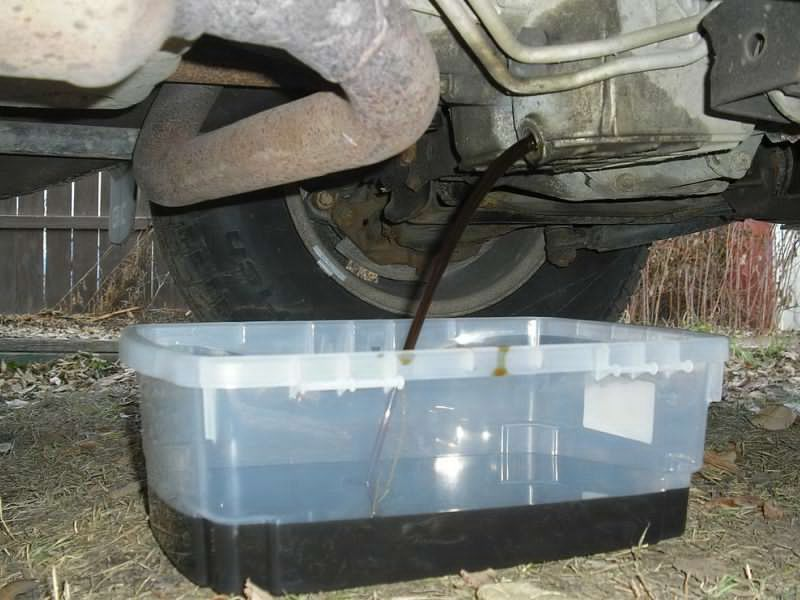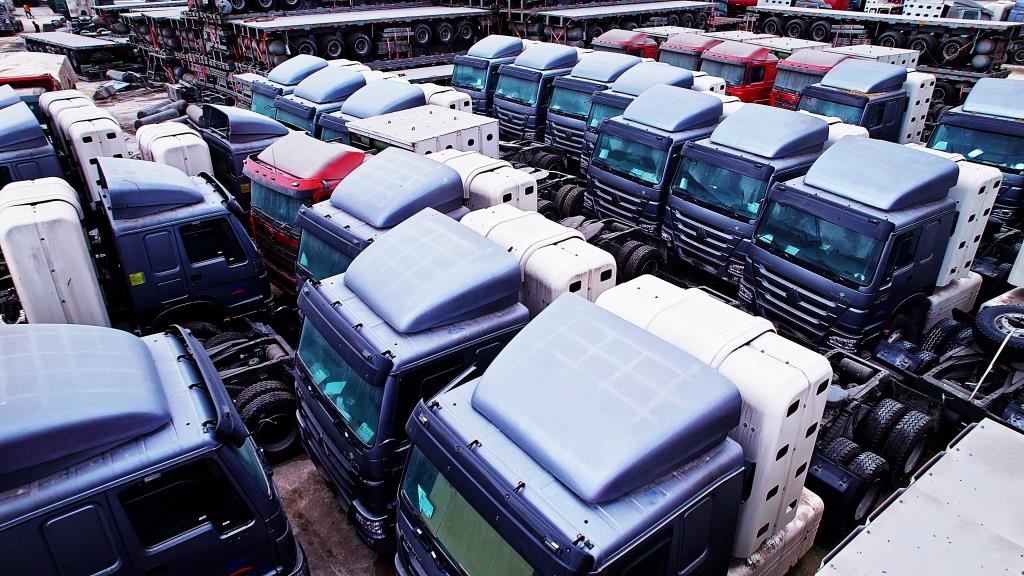Auto
10 Major Mistakes You’re Making When Changing Your Car Oil


By Autobytel.com
If you change your own oil (or even if you have a shop do it), your car may not be getting all the attention it needs. Almost everyone who has ever changed the oil in a car has made at least one of these mistakes at one time or another.
To help you learn from our mistakes (and so that you don’t have to make them yourself), here is our list of the top ten major mistakes you’re making when changing your car’s oil.
Changing the oil too frequently, not frequently enough, or not at all
It’s best to follow the oil change interval specified in your owner’s manual. If most of your driving is stop and go, you spend a lot of time idling, you tow regularly, or you live on a dirt road, you may need to follow the ‘Severe’ oil change schedule.
While changing the oil too frequently probably isn’t going to damage your engine, it is going to hurt your wallet. Not changing the oil frequently enough on the other hand can lead to costly engine repairs and the dreaded ‘sludge
Not checking the oil between changes
The recommendation used to be to check your oil every time you filled your car up with gas. Some full-service stations (remember those?) even offered to check your oil for you, and if the attendant forgot to offer, your gas was free.
Today you are probably safe checking your oil once every week or two, unless you know your car burns oil or has a leak. Some people are pedants and recommend checking it every day, which seems excessive, but better safe than sorry, right?
Not performing other routine maintenance at the same time
If you bring your car into a shop for an oil change, they’ll probably want to do a lube job, grease your doors, grease your emergency brake, and check the air filter, brake fluid, transmission fluid, engine coolant, and power steering fluid. Many times people who do their own maintenance will call it a day as soon as they are done swapping out the oil, without tending to these other tasks.
While many cars today don’t come with any grease fittings that need servicing, some aftermarket parts still include grease zerks that should be kept filled with a good quality grease.
Using oil additives
With today’s oils and engines, using an oil additive is probably not going to provide any benefits, and may in some extreme cases actually harm your engine. Generally, if your motor is in good shape, and you follow the recommended oil change interval and use the recommended type and weight of oil, using an oil additive is just going to be a waste of money.
Today’s engines often outlive the vehicles that they are installed in, even without the use of any special additives.
Using the wrong weight of motor oil
If you are still using 10w30 because that’s what you’ve always used or because that’s what you remember your mother or father buying, you’re probably making this mistake. Modern cars have tighter tolerances, and aren’t usually designed to use 10w30 anymore.
Using too expensive or too cheap a motor oil
If your owner’s manual recommends synthetic oil, you should follow the recommendation, but otherwise using synthetic might be just a waste of money. Unless your car sees severe duty such as extreme engine temperatures (some turbocharged and supercharged vehicles fall into this category, as well as some high performance naturally aspirated engines), towing, or racing, conventional oil might be the right choice for you.
Synthetic is not recommended for use in some engines, for example in rotary engines where it can damage seals unless specific care is taken to choose a compatible synthetic oil.
Over tightening the filter or drain nut
Some people seem to really like to tighten things as much as they possibly can, even when there is no reason to. Tightening a clean new oil filter with one hand is usually enough, and makes removing it much easier (you might not even need to use a wrench, sometimes just two hands are enough).
For the drain plug, if it doesn’t have a crush gasket, 20 to 25 ft-lbs is usually about right, while plugs with crush washers are usually tightened a bit more, around 30 to 35 ft-lbs. Overtightening will just cause you problems when it comes time to remove the filter or drain plug.
Not replacing the drain plug crush washer or oil filter cover o-ring
On some cars, especially those designed in European countries, the oil drain plug will use a soft metal washer to seal it. These washers are often not reusable because they are crushed the first time the drain plug is tightened down.
If you don’t replace the washer, you may end up with a slow and annoying leak. If your car uses a replaceable oil filter cartridge instead of a normal filter, you might want to consider changing the oil filter cover o-ring at every oil change as well.
Not rotating your tires
Oil changes often coincide with the tire manufacturers’ recommended tire rotation schedule (usually somewhere between 5,000 and 10,000 miles). Rotating your tires every oil change can be quite a bit of work (especially if you don’t have a lift), but should help them wear more evenly and last longer.
Not keeping track of oil changes
Usually when you get your oil changed at a shop they will place a sticker on your windshield telling you when the oil was last changed. The sticker acts as a reminder, and lets you know when the next oil change is due.
If you are changing your own oil, remember to keep track of the mileage and date, so you know when it’s time to do the next service. Otherwise, you’ll be trying to remember the exact date and mileage of your last change, or you may forget to do your oil change altogether.
Auto
Heirs to Introduce Low-Cost Motor Insurance

By Modupe Gbadeyanka
There are plans by Heirs Insurance to introduce insurance products tailored for vehicle owners, a statement from the underwriting firm has disclosed.
According to the subsidiary of Heirs Holdings, this low-cost motor insurance package known as the Flexi Comprehensive Motor Insurance Plan will provide the benefit of a comprehensive motor insurance plan for a fraction of the cost, addressing the financial realities many Nigerians face.
The underwriting company announced the plan to introduce this package as it launched a new campaign designed to reward its customers.
This initiative themed Unwrapping Smiles will bring hope to individuals, families, and communities this holiday season, and will run from December 10 to December 31, 2024.
It will feature community-focused outreaches, including Christmas gifts and exciting rewards to put smiles on the faces of Nigerians. It will also include the launch of a holiday-watch web film known as The Underwriters for all Nigerians to enjoy.
“At Heirs Insurance Group, we are committed to providing much more than insurance. In a season when many Nigerians seek hope and reasons to smile, we are proud to offer initiatives that inspire and uplift,” the Chief Marketing Officer of Heirs Insurance, Ms Ifesinachi Okpagu, said.
Auto
FG Claims Investments in Presidential CNG Initiative Now $450m

By Adedapo Adesanya
Nigeria’s Presidential Compressed Natural Gas Initiative (PCNGi) claims that investments in championing the CNG value chain have hit $450 million.
This was disclosed by Mr Michael Oluwagbemi, Project Director and Chief Executive Officer (CEO), PCNGi, during the 9th Edition of the Nigeria Energy Forum (NEF2024) Day 2, Virtual Event themed Energising Sustainable Industrialisation.
According to the PCNGi CEO, the amount goes into things like mother stations, daughter stations and refuelling stations as well as conversion centres which are starting to spring up across the nation.
Mr Oluwagbemi, represented by Mr Tosin Coker, the Head of Commercial, PCNGi, said the initiative had successfully converted more than 10,000 vehicles from petrol to CNG.
“By 2027, the initiative will have converted more than one million vehicles using petrol to CNG,” he said.
On incidents of explosion of vehicles using CNG, the CEO assured Nigerians that it had taken precautionary measures with different agencies of government to ensure safety.
Mrs Ibironke Olubamise, National Coordinator of the GEF Small Grants Programme (SGP), managed by UNDP, said the SGP was investing in youth energy innovation for economic growth and environmental sustainability.
Mr Daniel Adeuyi, NEF Group Chairman, said, “The event featured three super sessions on Energising Industrial Revolution, Community Climate Action by GEF-SGP UNDP and Clean Energy Innovations.
“The sessions are to share lessons learnt from real-life projects and build capacity of young entrepreneurs and cross-industry professionals.”
Mr Joseph Osanipin, the Director General of the National Automotive Design and Development Council (NADDC), said that the council had trained more than 4,000 auto technicians on how to convert petrol vehicles to CNG.
He said the council had started campaigns to sensitise Nigerians on the advantages of using CNG to power their vehicles.
“CNG can guarantee a cleaner environment, it is cheaper and affordable,” he said.
Mr Oluwatobi Ajayi, the Chairman and Managing Director of Nord Automobile Ltd., said the company was established to tackle the growing demand for vehicles in Africa and reduce import dependency.
He said that because of the Federal Government’s CNG initiative, the company had incorporated it into their vehicle production to meet up with the government policy.
Mr Armstrong Tankan, the Managing Director and Chief Executive Officer, Ministry of Finance Incorporated (MOFI), said that MOFI was set up in 1959 as the statutory vehicle to hold all the assets owned by the federal government.
“Today, we’ve been able to identify the assets the federal government owns and we are trying to track them.
‘We actually do have assets, not just locally but globally as well and we must establish visibility over what the federal government owns before we can start talking about managing them.
“So, we want to try to minimise the waste, minimise the overlaps and help to improve output,” he said.
Auto
Dangote Becomes Largest Operator of CNG Trucks With $280m Investment

By Aduragbemi Omiyale
Over $280 million has been invested by Dangote Cement Plc in compressed natural gas (CNG) technology and infrastructure to enhance energy efficiency and drive economic growth in Nigeria.
The cement maker turned to CNG in demonstration of its support for President Bola Tinubu’s drive for cheaper and cleaner fuelling alternatives for all Nigerians.
At a recent event, the President emphasised the urgent need for Nigeria to utilise its vast natural gas resources in the transportation sector.
He stated that CNG transportation is an economic necessity for Nigeria, signalling a significant shift in the country’s approach to public transportation and energy use.
This has spurred Dangote Cement to adopt CNG, reflecting its dedication to mitigating climate change and supporting a transition to a low-carbon economy, making it the largest operator of CNG trucks in the country.
The chief executive of Dangote Group, Mr Aliko Dangote, said his company’s investments in CNG are also in line with Nigeria’s Nationally Determined Contribution (NDC) under the Paris Agreement, which aims for net-zero emissions by 2060.
“In this pursuit of transition to clean energy, we are optimistic of a remarkable accomplishment by President Tinubu, as he has taken the lead in the nation’s drive towards energy efficiency. This presupposes private sector intervention to support this noble idea initiated by the President,” he stated.
The businessman noted that the firm’s early adoption of CNG has made it the largest operator of CNG trucks in Nigeria, emphasising that the initiative is a boost to Mr Tinubu’s quest towards enhancing the nation’s energy independence and contributing to a more secure energy future.
“We are now using CNG vehicles, especially with the new policy of the federal government, launched under the Renewed Hope Agenda by President Tinubu. We are committed to a cleaner and greener future,” Mr Dangote said.
On his part, the chief executive of Dangote Cement, Mr Arvind Pathak, said the cement miller aims to acquire 100 per cent CNG trucks as part of a long-term plan to transition its entire fleet to CNG.
He disclosed that the CNG infrastructure investments have positively influenced Nigeria’s transition to cleaner fuels, adding that the CNG station at Obajana, capable of refuelling over 3,000 trucks, exemplifies this commitment, with a second station currently under development in Ibese to support fleet operations further.
“By mid-2026, Dangote Cement aims to operate a fleet predominantly powered by CNG. To facilitate this transformation, we are investing in expanding our CNG fuelling infrastructure, ensuring that our growing fleet has reliable access to CNG as our fuel,” Mr Pathak said.
He added that plans are afoot to aggressively pursue this timeline of deployment, beginning from the first quarter of 2025, saying, “We are keeping our eyes on the ball to ensure that we do not miss our target dates of full compliance.”
-

 Feature/OPED5 years ago
Feature/OPED5 years agoDavos was Different this year
-
Travel/Tourism8 years ago
Lagos Seals Western Lodge Hotel In Ikorodu
-

 Showbiz2 years ago
Showbiz2 years agoEstranged Lover Releases Videos of Empress Njamah Bathing
-

 Banking6 years ago
Banking6 years agoSort Codes of GTBank Branches in Nigeria
-

 Economy2 years ago
Economy2 years agoSubsidy Removal: CNG at N130 Per Litre Cheaper Than Petrol—IPMAN
-

 Banking2 years ago
Banking2 years agoFirst Bank Announces Planned Downtime
-

 Sports2 years ago
Sports2 years agoHighest Paid Nigerian Footballer – How Much Do Nigerian Footballers Earn
-

 Technology4 years ago
Technology4 years agoHow To Link Your MTN, Airtel, Glo, 9mobile Lines to NIN













1 Comment